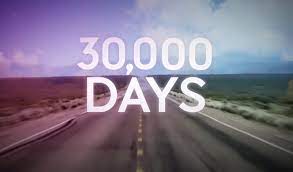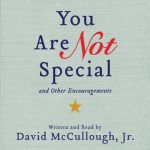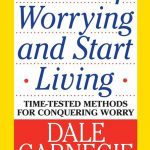“When you were born, you cried and the world rejoiced. Live your life in such a manner that when you die, the world cries and you rejoice.” – Indian Proverb
Depending on the part of the world you live in, you have about 30,000 days to be alive. According to Life expectancy and Healthy life expectancy data published by World Health Organization in December 2020, Japan has the longest life expectancy (84.3), and Lesotho has the shortest life expectancy (50.7). The average life expectancy is around 82 years; if you multiply 82 by 365 days, that equates to roughly around 30,000 days, and if you are lucky, it could be more.
Life Expectancy: The number of years a person can expect to live.
We cannot control the length of our lives, but we can control its width and depth. Our time here is limited, but we mostly live like we have all the time in the world, so we waste it. As the Buddha once said, “The trouble is you think you have time.” We overestimate what we can achieve in the future and underestimate what we can achieve in the present. We delay living; we say someday I’ll, and we eventually realize that someday becomes never.
Losing someone close is very tough and heartbreaking. it can also become a defining moment. It is not a matter of if, it is a matter of when: We are all going to DIE. I have had two of such defining moments since 2013. I lost my closest cousin in 2013 (26years old ) in very awful circumstances and also lost my mum to cancer in March 2019 (55 years old). Both instances were extremely tough as they were both, one of the few people I really felt safe around and could confide in. The loss of both of them gave me a renewed sense of urgency and have been obsessed with finding my purpose and living a legacy as a result. I believe that Life is short and the trivialities we spend our time with would not matter on our death bed – the Netflix shows, the social media accolades, the rat race, the outburst, the fame, and power. What would matter in the end is the lives of people we’ve been able to touch in the process.
The majority of us lead lives of quiet desperation, tiptoeing towards our grave and we don’t find our purpose for being, we go to jobs we don’t like, follow leaders(bosses) we don’t respect, try to impress peers that are not thinking about us, all in the name of impressing the world. Most of the greatest people we admire lived their life on their own terms, and they served others in the process. As Martin Luther King Jr. once said:
Life’s most persistent and urgent question is, ‘What are you doing for others?’
No matter how long you live, you are still going to DIE. You might live as long as Methuselah (that is not probable); Tupac was 24, Martin Luther King Jr. was 39, John Lenon was 40, Micheal Jackson was 50, Steve Jobs was 56, Walt Disney was 65, Mahatma Gandhi was 79, Mother Theresa was 87, Nelson Mandela was 95, and John D. Rockefeller was 97. No matter how long we stay here on earth, the most important thing is our legacy, how did we serve the world, how did we make people feel, and that, in the end, is what we would be remembered for.
If you calculate a typical long life which can be around 82 to 83 years that adds up to 30,000+ days. The challenge is that it can be longer or shorter but check out the following calculation of how long the greats below lived:
- Notorious BIG (24) – May 21, 1972 – March 9, 1997 – 9058 Days
- Tupac Shakur (25) – June 16, 1971 to September 13, 1996 – 9221 Days
- Martin Luther King Jr. (39) January 15, 1929 – April 4, 1968 -14,324 Days
- John Lenon (40) – 9 October 1940 – 8 December 1980 – 14,671 Days
- Kobe Bryant (41) -August 23, 1978 – January 26, 2020 – 15,132 Days
- Elvis Presley (42) – January 8, 1935 – August 16, 1977 – 15,561 Days
- John F. Kennedy (46) – May 29, 1917 – November 22, 1963 – 16,979 Days
- Whitney Houston (48) – August 9, 1963 – February 11, 2012 – 17,719
- Michael Jackson (50) – August 29, 1958 – June 25, 2009 – 18,564 Days
- Steve Jobs (56) – February 24, 1955 – October 5, 2011 – 20,678 Days
- Walt Disney (65) – December 5, 1901 – December 15, 1966 – 23,752 Days
- Muhammad Ali (74) – January 17, 1942 – June 3rd 2016 – 27, 166 Days
- Albert Einstein (76) – 14 March 1879 – 18 April 1955 – 27,794 Days
- Mahatma Gandhi (79) -2 October 1869 – 30 January 1948 – 28,609 Days
- Mother Teresa (87) – 26 August 1910 – 5 September 1997 – 31,785 Days
- Nelson Mandela (95) – 18 July 1918 – 5 December 2013 – 34,839 Days
- John D. Rockefeller (97) -July 8, 1839 – May 23, 1937 – 35,748 Days
- Jesus Christ (33/36) – 4 BC – AD 30/33[
- Prophet Muhammed c.570 – 8 June 632 (61/62)
Most of us live like we are going to comeback, breaking news – the only person that might be coming back is Jesus Christ. As for you and I, there is no coming back, no do-over or reincarnation (good luck if you believe in reincarnation), anyways here is a litte breakdown on how we live our life;
30,000 Days Break Down:
Sleep – 10,000 Days
The average human will spend one-third of their lifetime sleeping, 8 hours in a day. That equates to sleeping for 229,961 hours which is approximately 10,000 days.
sleep: 2,920 hours/year , 80 years – 233,600 hours
Work – 3,500 Days
“Work spares us from three evils: boredom, vice, and need.” – Voltaire
The work we do is very critical as it takes a large chunk of our lives. If you work for 8 hours per day, 40 hours work week, 2,000 hours per year, and let say you work for 40 years, that equates to 80,000 hours spent working. That means you would spend between 3,333 to 3,750 days working, depending on when you stop working.
There you have it, sleep and work would take close to half of your lifetime, around 13,000 to 14,000 days. That is why it is essential to love what you do, who you spend your time with, and re-ordering your priorities daily.
“The unexamined life is not worth living” – Socrates
Muhammed Alli on the brevity of Life:
Former Heavyweight champion of the world, Muhammed Alli had some great insight on the brevity of life. In a question and answer session, he was asked:
Young boy: Muhammad, I’d like to know what you are going to do when you retire from boxing.
Muhammed Alli: Feigned sleeping and he said ” I am going to sleep”.
When I retire from boxing, I really don’t know. I wanna say something right here, this might make you all think.
“Life is not really long,” Let’s say the average person is 30-years-old. If you’re 30 years old, you’re not but about 7 years old. How can I prove it? Add up all the 7, 8, 9 hours you slept each night for 30 years. Last night when you went to bed and woke up this morning, you don’t remember a thing. You’ve been unconscious for about 8 years if you’re 30 years old.
Add up all your traveling, all your sleeping, your school, your entertainment, you probably spent half your life doing nothing. So now I’m 35 years old. 30 more years I’ll be 65. We don’t have no more influence, we can’t do nothin’ much at 65, your wife will tell you that.
When you’re 65, ain’t too much more to do so. Did you know I will be 65 in 30 more years?
In those 30 years, I have to sleep 9 years, I don’t have 30 years of daylight, I have to travel back to America which takes 6-7 hours. With all my traveling, that will be probably 4 years of traveling in the next 30 years. About 9 years of sleeping, television, movies, and about 3 years of entertainment. So, out of 30 years, I might have about 16 years to be productive; so this is how we can all break down our individual lives. What I am going to do in the next 16 years, what is the best thing I can do? Get ready to meet God.
When I Die: Lessons from the Death Zone
Philip Gould, Baron Gould of Brookwood (30 March 1950 – 6 November 2011) was a British political consultant, and former advertising executive, closely linked to the Labour Party.
On January 29, 2008, Philip Gould was told he had cancer. After his treatment for three-times recurring cancer of the oesophagus had been unsuccessful and he was told by his doctor that he only had three months to live, Gould described himself as being in the “death zone”. Gould then turned his impending death into a campaign as a way of making his departure easier for his wife and daughters as well as helping others by writing and talking about facing up to death.
Phillip released an eight–minute film entitled, When I Die: Lessons from the Death Zone, which was filmed during the last 2 weeks of Philip’s life, it chronicles his quest to find purpose and meaning in his last days.
In the film, Phillip said:
“It’s only when they say, “Philip Gould, you’re going to die. Get used to it. And this is going to happen in weeks or months.” It’s only when that happens that you’re aware of death. And only when that happens also that suddenly life screams at you in its intensity”
“Only when you accept death can you free yourself from it, can you deal with it, can you move forward from it, so acceptance is the absolute key, at that moment, you gain freedom, and you gain power, and you gain courage.”
“You sort of think, God, I’m a scared, I’m a coward, I thought I was a coward, I was the kind of guy who was too frightened to kind of go too fast, on a bike, in the evening time, you think “I can’t do this, I can’t do chemotherapy, it’s too painful, it’s too horrible”, but you do it, and they say, “by the way mate, you’re not gonna have a stomach, and you’ll never eat normally again, ever again”, and you kind of get used to it, and, then you sort of think, actually, every single thing they throw at you, is handleable, you can do it.”
“I had a couple of really tough nights, my breathing was bad, my coughing was bad, everything was bad, and Gail was in a bad state too, and then I just lay there and thought, OK, this is bad, but this is death, and as long as I look death in the eye, and as long as I accept that I can choose the death that I seek and the death that I choose, I have some freedom, I have some power, I have some possibility to shape for myself my own death, and at that moment, I have a kind of freedom.”
A book was also published with the same title: When I Die: Lessons from the Death Zone.
Former Apple CEO Steve Jobs 2005 in his Stanford Commencement Speech:
When I was 17, I read a quote that went something like: “If you live each day as if it was your last, someday you’ll most certainly be right.” It made an impression on me, and since then, for the past 33 years, I have looked in the mirror every morning and asked myself: “If today were the last day of my life, would I want to do what I am about to do today?” And whenever the answer has been “No” for too many days in a row, I know I need to change something.
Remembering that I’ll be dead soon is the most important tool I’ve ever encountered to help me make the big choices in life. Because almost everything — all external expectations, all pride, all fear of embarrassment or failure — these things just fall away in the face of death, leaving only what is truly important. Remembering that you are going to die is the best way I know to avoid the trap of thinking you have something to lose. You are already naked. There is no reason not to follow your heart.
Your time is limited, so don’t waste it living someone else’s life. Don’t be trapped by dogma — which is living with the results of other people’s thinking. Don’t let the noise of others’ opinions drown out your own inner voice. And most important, have the courage to follow your heart and intuition. They somehow already know what you truly want to become. Everything else is secondary.
No one wants to die. Even people who want to go to heaven don’t want to die to get there. And yet death is the destination we all share. No one has ever escaped it. And that is as it should be, because Death is very likely the single best invention of Life. It is Life’s change agent. It clears out the old to make way for the new. Right now the new is you, but someday not too long from now, you will gradually become the old and be cleared away. Sorry to be so dramatic, but it is quite true.
Co-founder and CEO of Dropbox Drew Houston, in his 2013 MIT Commencement Address said:
If you were to look at my cheat sheet, there wouldn’t be a lot on it. There would be a tennis ball, a circle, and the number 30,000. I know this doesn’t make any sense right now, but bear with me.
I used to worry about all kinds of things, but I can remember the moment when I calmed down. I had just moved to San Francisco, and one night I couldn’t sleep so I was on my laptop. I read something online that said “There are 30,000 days in your life.” At first I didn’t think much of it, but on a whim I tabbed over to the calculator. I type in 24 times 365 and — oh my God, I’m almost 9,000 days down. What the hell have I been doing?
“There are 30,000 days in your life.”
(By the way: you guys are 8,000 days down.)
So that’s how 30,000 ended up on the cheat sheet. That night, I realized there are no warmups, no practice rounds, no reset buttons. Every day we’re writing a few more words of a story. And when you die, it’s not like “here lies Drew, he came in 174th place.” So from then on, I stopped trying to make my life perfect, and instead tried to make it interesting. I wanted my story to be an adventure — and that’s made all the difference.
We switch on the TV or scroll through our social media feed and we see or hear about the demise of someone say Kobe Bryant, Micheal Jackson or Chadwick Boseman. We reflect for a while about the impermeance of life, the brevity, the unsaid goodbyes and we say things like Life is short, he was so young, he had plans and we go back to living like we have all the time in the world. We forget that we are going to probably go suddenly too, maybe through a stroke, terminal illness like cancer, or even die in our sleep.
Most of us are terrified about our coming demise and we choose not to think about it, hence we lead a life of quiet desperation as noted by Henry David Thoreau and we tiptoe throughout our life and we eventually DIE with our music still left unsung, The graveyard is said to be the richest place on earth as we do not start that business, volunteer for that organization, did not sing that song, share our ideas with the world or mentor others to discover their purpose. A lot of us would not make a mark because of fear of the unknown.
We go to jobs we don’t like, endure and tolerate relationships with colleagues and peers we don’t respect, we perform for the world, buy clothes and cars we don’t need to impress people that are obsessed with themselves and at the end of our lives, we are filled with regrets of shouldas,couldas, Our time here is limited, we are all going to DIE, young, old, handsome, ugly, fat, slim, tall, short, sickly, rich, poor, white, black, deaf, blind, all of us have that one thing in common. Death is by far the most inevitable thing in life and we can lead a great life by examining our life constantly as Socrates advised and in the process live a legacy that would stand the test of time.
All the Best in your quest to get Better. Don’t Settle: Live with Passion.



4 Comments
Pingback: The Allure of Groupthink in the age of Social Media. – Lanre Dahunsi
Pingback: 7 ways of reminding yourself of your Mortality. – Lanre Dahunsi
Pingback: Setting Healthy Boundaries. – Lanre Dahunsi
Pingback: On Boundaries. – Lanre Dahunsi